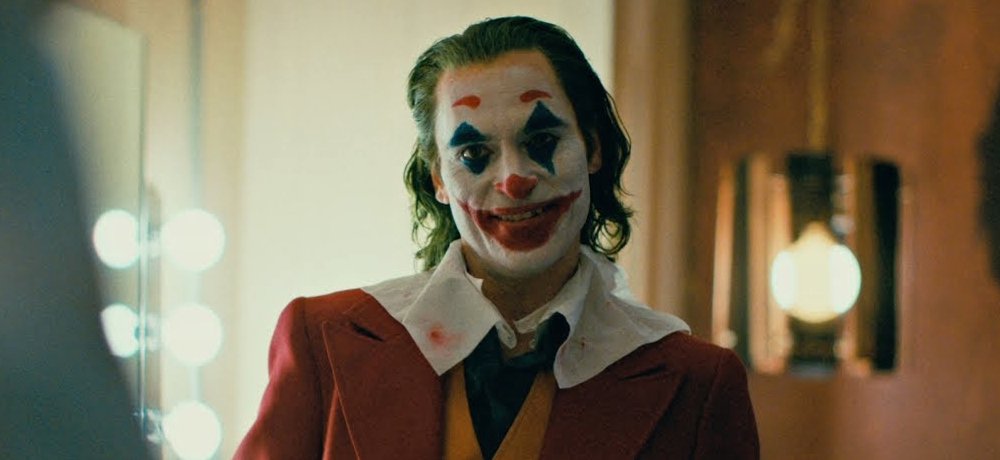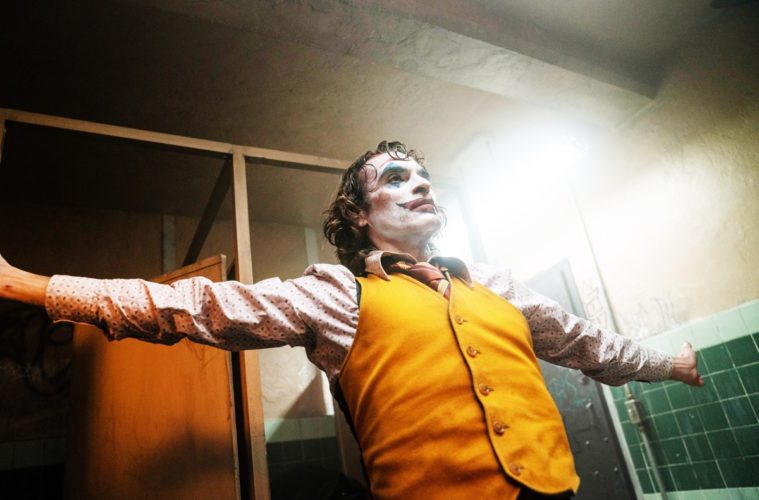What is there yet to be done with a character like the Joker? Bruce Wayne’s bête noire has been around almost as long as the Caped Crusader himself, which is to say: a really long time. The character first appeared in Batman #1 in 1940 as war was raging in Europe and one of the biggest films of the year was by another great clown. Director Todd Phillips might not exactly have had that in mind when he sat down to write Joker–even if his new movie is rife with nods to Chaplin and American cinematic lore. Phillips will, however, have considered the performances of Cesar Romero, Jack Nicholson, Heath Ledger, and, yes, Jared Leto as he thought of ways to turn the great super-villain into an antihero for the 99% bros (and maybe the redpill bros). With thanks to a typically dedicated, tectonic-plate-shifting Joaquin Phoenix performance, he basically pulls it off.

Phillips’s career has gone from Old School to The Hangover to The Hangover III. Not exactly an eclectic mix by anyone’s standards, so the hiring of Scott Silver, whose back catalogue of tough Hollywood working-class stories includes 8 Mile and The Fighter, seems a shrewd move. Martin Scorsese was once attached as a producer, and Phillips and Silvers borrow liberally from the great director’s movies–mainly Taxi Driver and The King of Comedy–to give us a grimy and very Scorsese vision of Gotham, one that appears to be an ersatz 1981 New York–or, as J.C. Chandor once alluded to, the city’s most violent year on record. We spot Blow Out and Zorro, The Gay Blade playing at the local theater. The streets are filled with trash from that year’s infamous binmen strike. Much for our burgeoning Travis Bickle to wash away, it would seem.
Phoenix begins the film as Arthur Fleck, a down-and-out street clown who takes a beating in the opening minutes while on the job. Fleck lives with a sickly mother fro whom he cares at the expense of his sanity and social life. (If the movies have thought us anything, it is that this kind of living situation is best avoided.) Ms. Fleck (Frances Conroy) used to work for Thomas Wayne (canon?) and harbors a delusion that the powerful man will one day save them from their relative squalor. In a knowing and delightful homage to The King of Comedy, Fleck fantasizes about going on a Late Night show in which the host, Murray Franklin, is played by Robert De Niro.
He also dreams of becoming a standup and takes a liking to a neighbor (Zazie Beetz) who he invites to see him perform at the comedy club. Beetz is just one of a fine little group of supporting characters and bit-part performers–these include the ever-welcome faces of Brian Tyree Henry and Marc Maron. It is also nice to see De Niro having a blast onscreen for a change, it really has been a while. Hildur Guðnadóttir, the Icelandic cello supremo responsible for scoring Sicario and Arrival, brings the appropriate levels of bombast. Frequent Phillips collaborator Lawrence Sher shoots it with aplomb. None of which would be worth a damn without Phoenix’s committed performance–about equal parts Freddie Quell, Joe from You Were Never Really Here, Fred Astaire, and Rupert Pupkin, all crossed-over intensity, flailing limbs, and physical comedy. Or: more Ledger than Leto, and worth the price of admission alone.

For all its merits, however, Joker relies on too much exposition as it attempts to shape a digestible origin story. The plot device, for instance, used to explain Fleck’s impromptu bursts of laughter is at best unimaginative, at worst just plain clunky. Phillips also makes hard work of the character’s transition into murderous maniac, despite one apparent bombshell that we will not even dream of laying a finger on.
What exactly this film is taking aim at is also up for debate. Fleck’s beefs are with the wealthy, the bullies, the ones who “made it,” the ones who forget society’s downtrodden, and so on. (Thankfully he mostly leaves the women who won’t talk to him alone.) When looking back at The Dark Knight–and in particular the scene when Ledger’s Joker sets fire to the mountain of cash–in his 2012 book Film After Film, the great J. Hoberman noted that, given the timing of that film’s release during the financial crisis, what really made the Joker scary in 2008 was that he didn’t care about money. Phillips’ Joker can posture about nihilism all it likes; what makes his film not scary is that it cares about a lot.
Oh, and don’t bother waiting for the credits to finish rolling.
Joker premiered at Venice Film Festival and opens in theaters on October 4.

